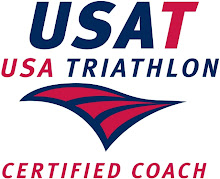Have you ever noticed the obvious physical difference between a distance runner and a sprinter? Yeah, many distance runners are almost too skinny. Now, the world class runners may be a little more genetically programmed to be extra thin and need to be as light as possible too, but even many of those athletes are realizing that perhaps there is a performance edge they could gain if they had a bit more muscle and strength. But, what about you? If you’re not running for a podium position, does the concept of being stronger matter? MOST DEFINITELY because MUSCLE IS WHERE YOUR HEALTH IS. As long as you are a human, then adding and strengthening your muscle tissue will increase your immunity, help you reach your fitness goals faster, increase your performance, produce more anabolic hormones like testosterone and growth hormone and help you lose body fat more quickly. This will not happen with just aerobic exercise. So every person out there looking to look, feel and perform their best should be doing both strength work and faster running work.
So once you decide to lift weights, then what? That gets a little bit trickier because there are so many options. And actually, a lot of good ones too. So here are some ideas:
If you are a beginner:
- Stick to lighter weights and higher reps like 3 sets of 10-15 reps.
- Go no more than twice a week for an hour.
- Lift upper body, lower body and core.
- Find exercises that doesn’t use machines that you sit in or are supported.
- Train your body to support itself.
- Go to a body sculpt or body pump type of strength class.
- Hire a trainer to help lay out a program or try resources below, but go lighter.
- Stick with easier exercises for 3-4 months until you have strengthened your joints to handle harder movements like squats or deadlifts.
- Take a week of now and then.
- Lift most of the year.
If you are more experienced:
- Use a periodized strength program that cycles through muscle endurance, hypertrophy (muscle building) and power phases.
- Make sure to know your 1 rep max numbers so you are lifting as hard as you are supposed too. For example, if you are supposed to lift 70% of max, do you really know what that is?
- Most all exercises should be functional and/or compound movements.
- Try a book like this http://www.velopress.com/triathlon.php?id=263
- Try a DVD like this http://www.thenextleveldvd.com/ (great demos/programs.)
- Hire a knowledgeable performance oriented strength coach. Ask for references.
- Add plyometrics in the spring and summer.
- Lift twice a week most of the year.
- Take a week off now and then.
Whatever lifting program or class that you decide to pursue, be smart. If you get really tired, then lighten up or take a week off. Always take time off in the 10-14 days before a big race or event. Overall, give yourself time to adapt your body and be patient. At the very least, realize that muscle work is an essential part of training. So, get going, get tough, get strong and stay on it!









No comments:
Post a Comment